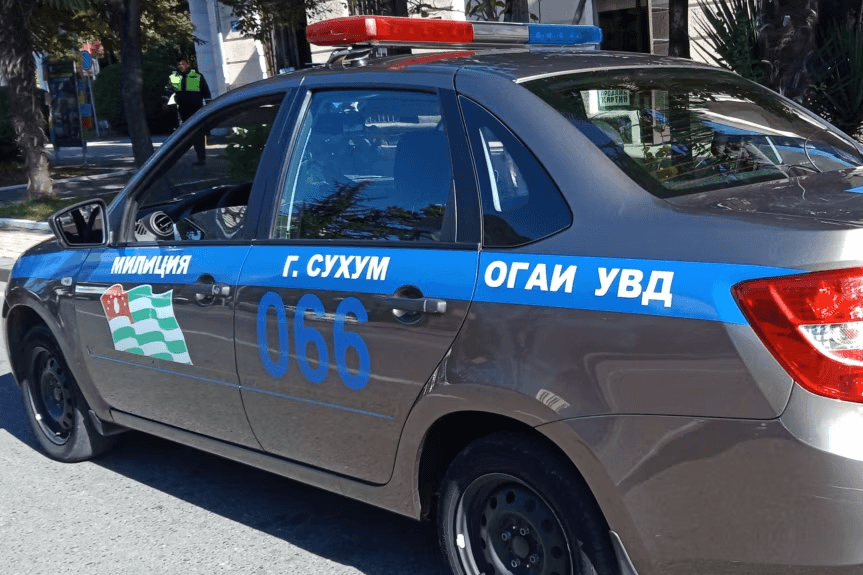
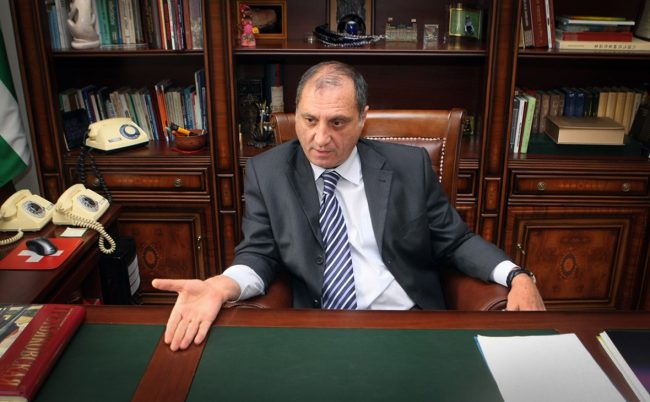
 Former Prime Minister of Abkhazia, Sergey Shamba, has said that there is a need for more dialogue between Georgia and Abkhazia, and that it was time to think about a ‘common future’ as neighbours. Shamba, who served as PM from 2010–2011 as well as foreign minister from 2004-2010, made the comments in an interview published on 13 August with Echo of Moscow.
Former Prime Minister of Abkhazia, Sergey Shamba, has said that there is a need for more dialogue between Georgia and Abkhazia, and that it was time to think about a ‘common future’ as neighbours. Shamba, who served as PM from 2010–2011 as well as foreign minister from 2004-2010, made the comments in an interview published on 13 August with Echo of Moscow.
He said the only existing dialogue format — the Geneva discussions — should be maintained but expressed hopes for further dialogue ‘on our future’.
‘I do not consider Georgians as enemies. I have friends in Georgia. As a matter of fact, of course there was an ethnic conflict, but more so it was political’, Shamba told Echo of Moscow.
He said other ‘neighbouring nations once fought’, but that there ‘comes a time when you need to build relationships’. Shamba said that in 1997, a delegation from Abkhazia he was a part of went to Tbilisi to negotiate the possibility of having a ‘common state’, but that ‘neither federation or confederation’ were any longer up for discussion. Despite this, he said ‘it is already possible to talk about good-neighbourly relations’.
‘I told them to decide what they want — to return the territories or the trust of Abkhazian society. These are two different things. If you want to return the territory, you have already tried. This can only be done by force. You did not succeed with force, it will especially not work now. But trust is to be established, steps must be taken for this. All you do today is exacerbating our relationship, because now, when some sports teams or children, or amateur art activities go abroad, the Georgian side keeps on protesting and hampering them. This, of course, does not contribute to dialogue being started. But, I think it will happen someday’, said Shamba.
‘Dialogue with Abkhazians and Ossetians is crucial’
Since Russia’s recognition of Abkhazia and South Ossetia’s independence in 2008, Georgian authorities have publicly held Russia responsible for the conflict, stressing a need for ‘engagement without recognition’ with the populations of Abkhazia and South Ossetia.
In reaction to Shamba’s interview, Minister for Reconciliation Ketevan Tsikhelashvili said that ‘dialogue with Abkhazians and Ossetians is crucial’, according to InterPressNews.
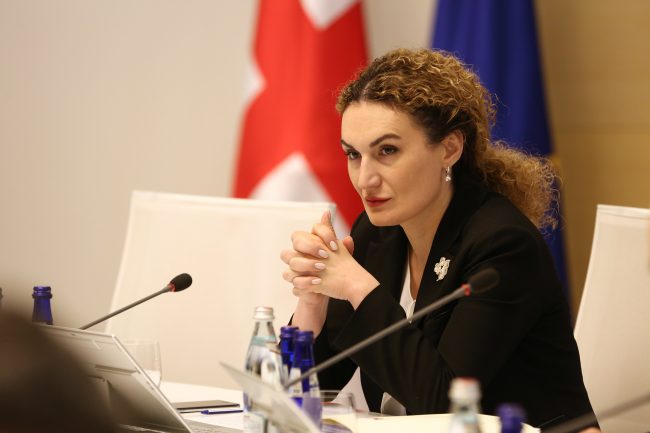
‘Such dialogue is marked as one of the main directions of our peace policy. The corresponding form on different levels can absolutely be determined without politicisation, the experience of which we have on our own’, said Tsikhelashvili.
On 7 August, Tsikhelashvili told OC Media she had in the past invited representatives of the authorities in Abkhazia for talks.
‘At my first round in [the Geneva discussions], I invited the Abkhaz participants to also set up a different line of talks. Still waiting for reciprocity’, said Tsikhelashvili. Her predecessor, Paata Zakareishvili, has also been a vocal proponent of this.
In a recent opinion piece for OC Media, Zakareishvili said Abkhazians should be recognised as a party to the conflict and should be treated as such during negotiations. He criticised the government’s approach to the conflicts, saying they were ‘now following’ the ‘UNM narrative’ for resolving and transforming the conflicts, referring to the previous ruling party the United National Movement, which he said had proved ineffective.
‘So what is the basis of Georgia’s current policy; a policy that is in truth simply a continuation of the UNM narrative? It is the idea that Georgia is a victim of Russia, that Russia is an aggressor, that Russia is an occupant, and that Russia has recognised the independence of Georgia’s territories. […] Georgia’s vision has not moved beyond this narrative since 2008, and it is significantly slowing down the process of resolving the conflicts. First and foremost, the responsibility to resolve conflicts lies primarily with the state in which they are taking place, and only after comes the importance of international support. But this has not been the approach taken by the government of Georgia’, Zakareishvili said.
‘If there is a political will, Georgia has the most real chance to implement a breakthrough in this regards, but at present, it continues to tread the same well worn path’, he said.
[Read Paata Zakareishvili’s opinion on resolving conflicts on OC Media: Georgia should shake up its conflict policy, and recognise the Abkhazians and Ossetians as sides]
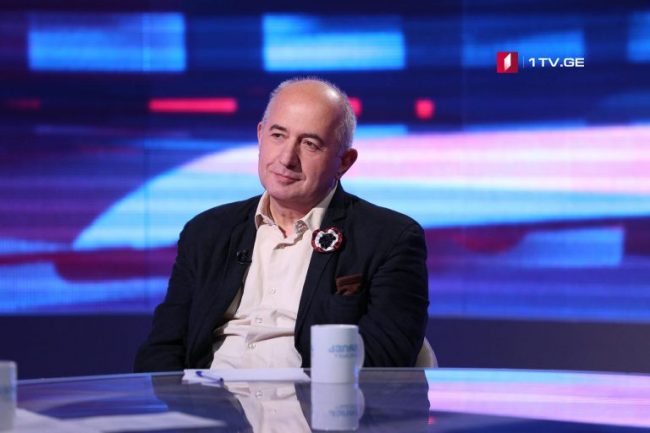
Georgia’s unsuccessful attempt at ‘direct dialogue’
A recent attempt by the Georgian government to initiate ‘direct dialogue’ failed after outcry from opposition parties, who claimed it ‘endangered Georgia’s national interests on the international arena’.
On 9 March, in an appeal to Russian authorities, then–Prime Minister Giorgi Kvirikashvili said Georgia was ‘ready for direct dialogue with the Abkhazians and the Ossetians’. He was heavily criticised by opposition groups for this, with a number accusing him of being ‘pro-Russian’. Critics said the statement was a pretext for taking a step back in Georgia’s policy of ‘non-recognition and engagement’.
This was not the first time Georgian officials expressed the will for direct talks. In 2013, then–Prime Minister Bidzina Ivanishvili said Georgia was ready for ‘direct dialogue with its Abkhaz and Ossetian brothers’, which also caused controversy.
The US Ambassador to Georgia, Ian Kelly, suggested Georgia should ‘of course […] have contacts with civil authorities’ in Abkhazia, and possibly in South Ossetia. He supported Georgian PM Giorgi Kvirikashvili’s appeal to Russia to improve relations and calling for ‘direct dialogue with the Abkhazians and the Ossetians’.
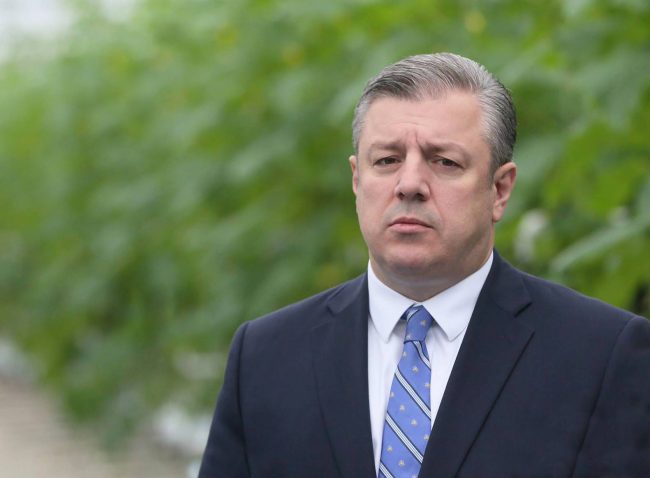
After the government came under fire for the offer, Ketevan Tsikhelashvili, Georgia’s Minister for Reconciliation, clarified that Kvirikashvili had meant talks ‘with the Abkhazians and the Ossetians — their society, with whom we envision living with in future and building a future’.
[Read more about Kvirikashvili’s statement and their aftermath on OC Media: Georgian PM under fire after call for ‘direct dialogue with Abkhazians and Ossetians’]
On 13 March, Abkhazia’s Foreign Minister, Daur Kove, responded to Kvirikashvili’s statement.
‘The problem is that we have not yet seen any real steps on the part of Georgia which would facilitate the establishment of dialogue and the settlement of the conflict as a whole’, he told Abkhazian state-run news agency Apsnypress.
‘During the Geneva international discussions, Abkhazians are faced with a complete lack of understanding from the Georgian side of the problems that exist, and a categorical refusal to adopt a joint document on the non-use of force’ he added.
Georgia’s new initiative
A month later, on 4 April, Georgian authorities unveiled an ‘unprecedented’ plan to ‘encourage contacts, movement, and relations’ with people in Abkhazia and South Ossetia. The plan included efforts to simplify trade, including from Abkhazia and South Ossetia to the EU, and encourage students from Abkhazia and South Ossetia to study in Georgian institutions and abroad. The initiative also included changes to Georgia’s Law on Occupied Territories.
Prime Minister Kvirikashvili opened the monthly government meeting with what he called ‘a very important initiative that involves an unprecedented step on our country’s peaceful stable development’.
These ‘specific steps’, he said, were aimed at ‘improving the humanitarian and socio-economic situation’ of people in Abkhazia and South Ossetia.
While the US, EU, and a number of other countries welcomed the initiative, the offer was denounced by officials in Abkhazia.
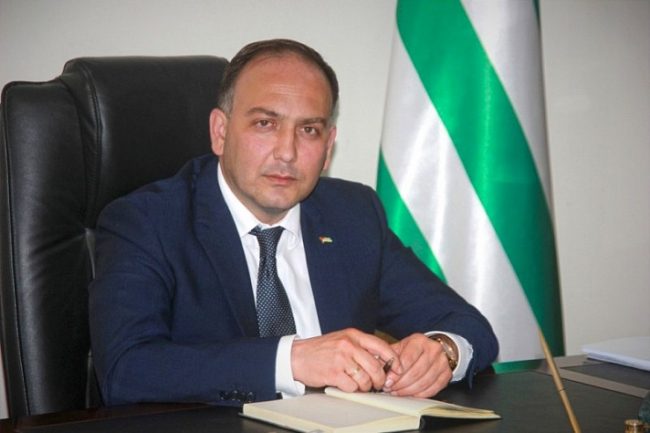
The same day Kvirikashvili unveiled Georgia’s plan, Abkhazian Foreign Minister Daur Kove responded saying Georgia was ‘masking its true intentions’. According to him, the ‘only step toward a better future is Georgia’s recognition of the independence of the Republic of Abkhazia and the establishment of fully-fledged interstate dialogue between our countries in the name of stability and prosperity for future generations’. According to him, there is ‘no alternative’ to this.
Kove said that Georgia, ‘having exhausted its resources of pressure on Abkhazia, once again decided to show the world community some kind of friendliness towards our state, skilfully masking its true intentions under the guise of the above initiatives’. He added that he was appealing to Georgia’s political leadership ‘with a proposal to stop lying in favour of their self-serving political ambitions’.
Abkhazia’s ‘international recognition’
Russia was the first country to recognise the independence of Abkhazia and South Ossetia, on 26 August 2008, following the August War. In May, Syria became the fifth state to currently recognise their independence, following the example of Nicaragua, Venezuela, and Nauru, a small Pacific island with a population of 10,000. Vanuatu first recognised Abkhazia in 2011, withdrawing this in 2014. Tuvalu had previously recognised both, but withdrew recognition in 2013.
States providing official recognition for Abkhazia and South Ossetia have been accused of doing so in exchange for Russian financial aid. Russian troops and mercenaries are currently fighting in Syria’s civil war in support of embattled Syrian president Bashar al-Assad.
For ease of reading, we choose not to use qualifiers such as ‘de facto’, ‘unrecognised’, or ‘partially recognised’ when discussing institutions or political positions within Abkhazia, Nagorno-Karabakh, and South Ossetia. This does not imply a position on their status.






